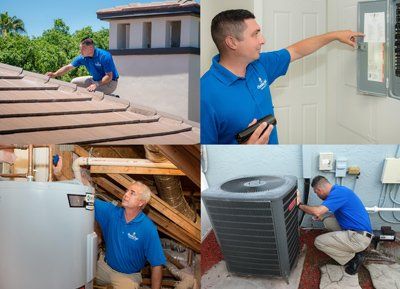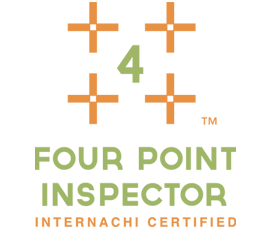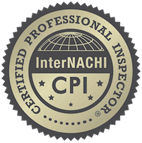4 POINT INSPECTIONS CENTRAL & SOUTH FLORIDA

A “Four Point Inspection” focuses only on four main areas of interest in a home:
- HVAC (Heating, Ventilation and Air Conditioning)
- Electrical wiring and panels
- Plumbing connections and fixtures
- Roof
Breaking News – New Changes to the 4 Point Inspection Form
Property Insurance corporations governed by the State of Florida have released new major changes on March 20, 2025. These changes add several new items to better evaluate risk to determine insurance policy eligibility. Some of these changes are outlined below.
- Minimum Photo Requirements: Picture of temperature pressure relief (TPR) valve on the water heater must be included .
- Electrical System: Single-strand aluminum wiring remediation must be provided and certified by a licensed electrician. Additional types of wiring have been added to the Supplemental Information section.
- HVAC: Is a wood-burning stove or central gas fireplace present? Was it professionally installed?
- Plumbing: Age of piping supply system, Age of water heater, Age of piping drain system, Original to home, Completely re-piped, Partially re-piped, Additional pipe types have been added, Year installed of PEX.
- Roof: Any visible signs of leaks must be expanded if Yes is checked.
Summary
In summary, the recent updates to the 4 Point Inspection report introduce stricter evaluation criteria, which may lead to an increase in policy denials or require homeowners to complete necessary repairs before securing coverage. Additionally, you should expect a slight increase in the onsite inspection itself, as a more in-depth evaluation is now required. These changes aim to enhance risk assessment and ensure properties meet updated safety and compliance standards.
References
Citizens Property Insurance Corporation can be contacted for additional information.
A four-point home inspection is limited to a skilled inspection of the roof, the electrical system, plumbing, and the heating, ventilation, and air conditioning (HVAC) system. Though we (and you) are not given specific requirements that must be met by the insurance companies, we have deduced from experience specific system elements that are important — age and type of system and its essential parts, the condition of the system, and whether the system has been updated to more current standards and/or quality. It’s the underwriter’s job, not to qualify you for homeowners insurance, but to determine if there is a reason to disqualify you. Our experience and skills in the four-point home inspection mean we can help you know what you can perhaps do to rectify possible disqualifying issues in your major home systems.

WHY DO I NEED A FOUR-POINT INSPECTION?
Insurance companies have become increasingly reluctant to issue Homeowner Insurance Policies on older homes (usually 30 years old or more). Their common concern is that there may be conditions in an older home that could become a liability to them. For instance; a home with a roof nearing the end of its reliable service life may fail while under the policy and the homeowner may seek reimbursement from their insurance company for damages to the home or its contents. Similar concerns extend to the condition of the HVAC, electrical, and plumbing systems in an older home. If these elements are in poor condition, in need of being updated or replaced, or were improperly installed, they may fail and cause fire or water damage to a home. Newer homes are assumed (by the insurance companies) to not have these problems as frequently as older homes.


